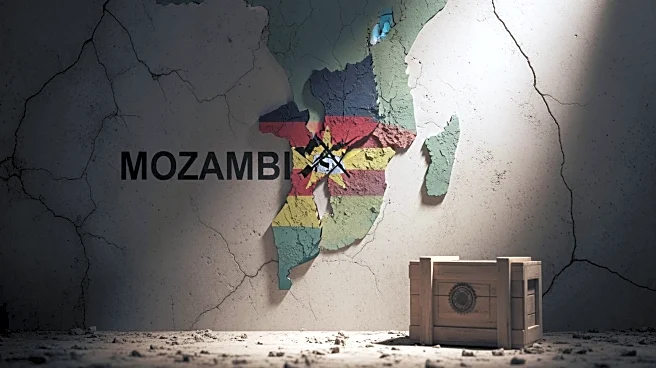What's Happening?
In Mozambique, the ISIS insurgency has gained new momentum following significant cuts to US aid programs. The reduction in assistance, ordered by President Trump, has affected efforts to bolster the central
government's presence and curb extremism. The insurgents have capitalized on the weakened state support, launching a renewed offensive in the northern Cabo Delgado region. This area, rich in natural gas, has been a focal point of conflict, with ISIS seizing control of key towns and causing widespread displacement.
Why It's Important?
The resurgence of ISIS in Mozambique highlights the critical role of international aid in stabilizing regions affected by extremism. The US aid cuts have left a vacuum that insurgents are exploiting, threatening regional security and economic stability. Mozambique's natural gas resources are vital to its economy, and continued conflict could deter investment and development. The situation underscores the interconnectedness of global security and economic policies, with US decisions having far-reaching consequences.
What's Next?
The Mozambican government, along with regional allies like Rwanda, may need to reassess their strategies to combat the insurgency. International partners could be called upon to provide support, either through military assistance or renewed aid programs. The US may face pressure to reconsider its aid policies, especially if the situation in Mozambique deteriorates further. The international community will likely monitor developments closely, as the conflict could have broader implications for regional stability and global security.









